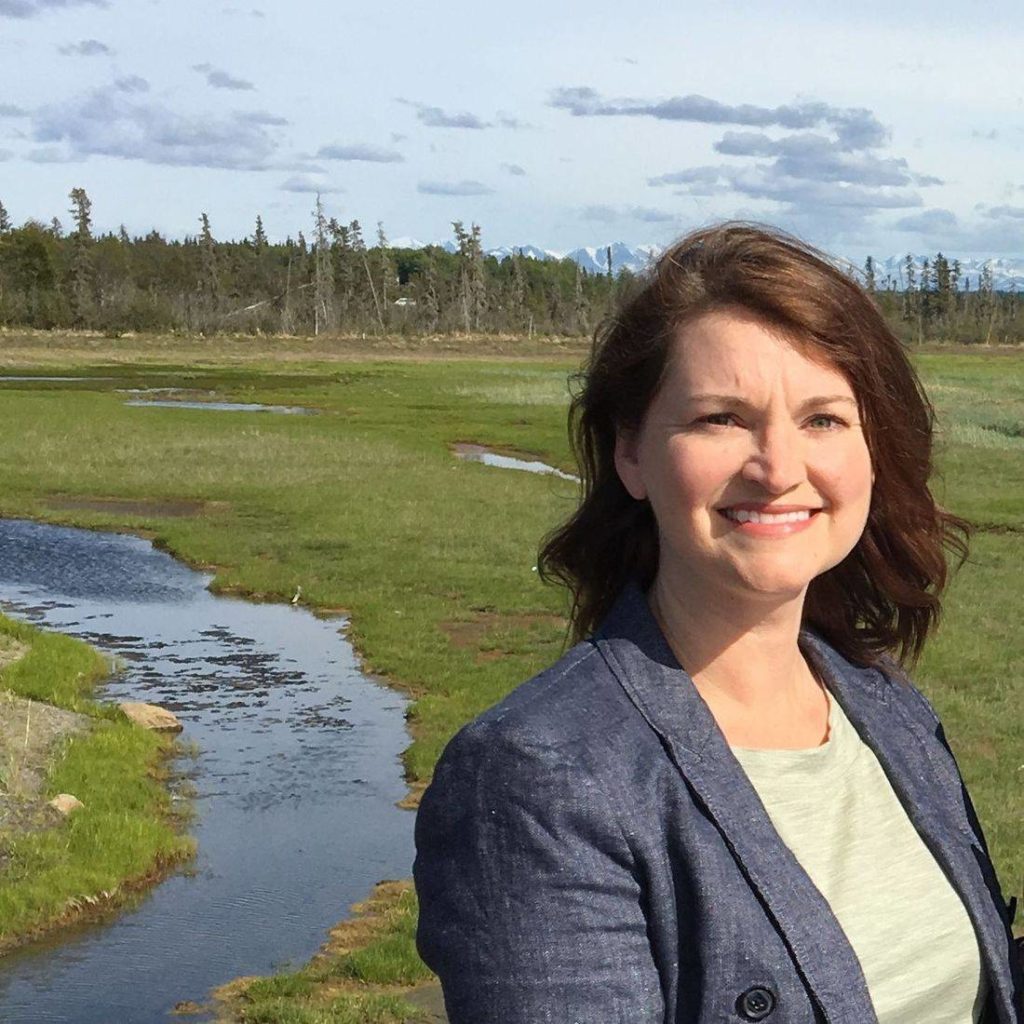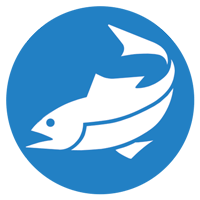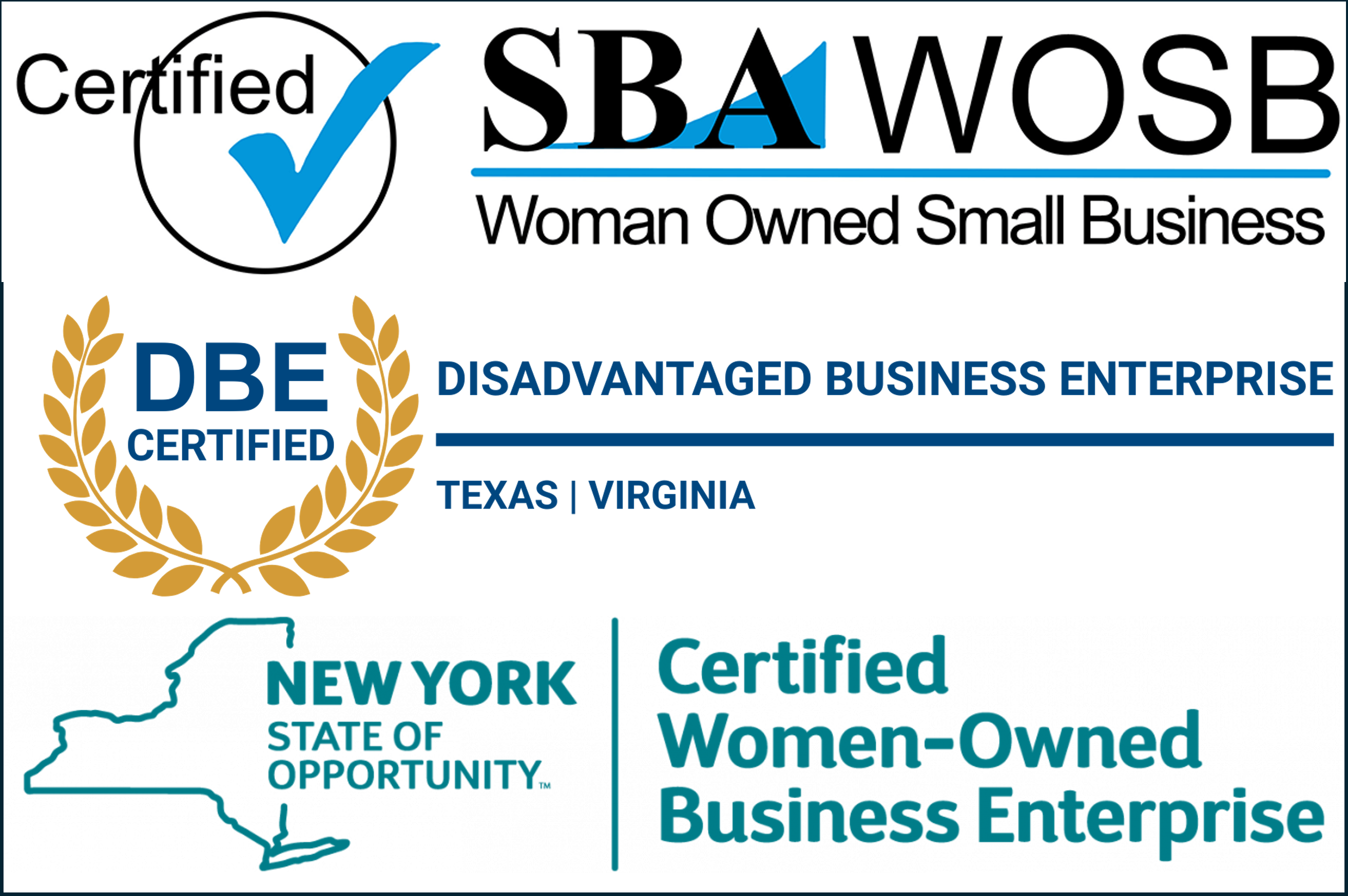
Mandy Migura
Wildlife Biologist Consulting
Meet Mandy Migura – the 3rd female scientist featured in our Women Doing Science blog series!
Master of Science in Biology; Bachelor of Science in Wildlife and Fisheries Sciences
From research biologist to federal regulator and now business owner, Mandy shares her experience of working with marine mammals and people. What’s her take-home message to those interested in pursuing a similar career path? Volunteer, be fearless, and don’t believe anyone who says you can’t do it!
AMY: Alright! Welcome to our “Women Doing Science” blog series. This is our third interview in the series. We have Mandy Migura, she is a wildlife biologist from Anchorage, Alaska. Hi Mandy!
MANDY: Hello. How are you?
AMY: Good. How are you?
MANDY: Good. Thank you for having me on!
AMY: Thank you for joining us, we really appreciate it. So, we’ll just delve right on into the questions. What is your current job title and position?
MANDY: Well, starting in 2018, I started my own wildlife conservation company called Broad Conservation. So, I’m the owner of that company, and I contract my experience out to various other wildlife organizations ranging from non-profit organizations, private research firms, environmental consultancies and the federal government. And, depending on whom I’m working for at that moment, determines my technical title. So, I’ve been a “Scientist #7,” a “Deputy Director” of a non-profit, a “Marine Mammal Stranding Program Support Staff,” a “Marine Mammal Permitting and Compliance Support Staff,” and an “Expert Reviewer.”
AMY: Great. A lot of titles. A lot of roles! So, briefly describe the work that you do.
MANDY: Well, I’ve done a lot of different types of work over my 20-plus-year career. I started out as a research biologist studying wild and captive marine mammals. I worked on dolphins, whales, manatees, monk seals and sea lions in Hawaii, Florida and Alaska. And then I transitioned to work for the government in a regulatory role. And, I spent 11 years with the federal government in Alaska coordinating marine mammal programs, including the endangered Cook Inlet Beluga Whale Program and the Stranding Response Program. Then, for about the past two years, I’ve owned my own business and I provide various wildlife related services to my clients.
AMY: That’s great. Awesome. Great background! When did you know this was what you wanted to do?
MANDY: I remember in the 9th grade, about, writing a paper about what I wanted to be when I grew up. And, I wrote about working with marine mammals. And then, right around the same time, my school gave all the students an aptitude test, and my results indicated that I was best suited for being a park ranger.
AMY: [Laughs]
MANDY: And that’s actually the closest thing they had to a wildlife biologist, so, for most of my life I’ve known I wanted to work with marine mammals and wildlife.
AMY: That’s great, that’s great. And, this is a really important one that we all struggle with: How do you maintain a work/life balance?
MANDY: This can actually be really challenging. And, it was actually my inability to sustain a healthy work/life balance while I was working for the federal government that led me to start my own business. Um, I have structured my business now to allow me more flexibility in determining, not only the clients and the types of projects I work on, but also my work schedule. Most of my work now is done remotely, so if I need to take time off in the middle of the day or shift my hours to work late at night or on the weekend, I can do that now without stressing out. You know, it was an adjustment in the beginning, and I felt guilty if I wasn’t working during the “standard business hours,” but now I thrive in working a non-traditional schedule. And, I have more time for my family.
AMY: That’s great. That’s great. What is one thing you wish you had known before you started pursuing your career?
MANDY: Oh! That’s a good one. There’s a lot but one thing I think, in this field, to start getting animal or wildlife experience early. To start volunteering or interning in high school because it is a very competitive filed and having some experience under your belt before applying for your first, you know, “real job” after college, it will give you an edge. I personally didn’t start getting my experience until my last semester of college and I ended up volunteering for a while after I graduated college. So, what I would say is: Be fearless, and ask various wildlife-related groups if you can volunteer with them. You know, the worst thing that they can say is ‘no.’
AMY: Exactly, and most groups are very happy to have the help.
MANDY: Absolutely.
AMY: Definitely. Alright, describe one challenge you have overcome in your work or your personal life.
MANDY: You know it’s amazing the power wielded by fear. One of the biggest challenges that I faced throughout my career is not my fear, but rather the fear of my loved ones that they had for me that I would fail. And, it’s not that they didn’t believe in me, but they didn’t understand how I could make a good life being a wildlife biologist. It was something that, you know, I grew up in Texas and there’s no oceans or waters around, so marine mammal work was crazy talk. And, they really wanted me to succeed, so they had a lot of fear for me. And, unfortunately it ended up that I often felt that I always had something to prove, rather than feeling supported. That was a big challenge of… it was fear built out of love, but it was still trying to overcome their doubts for me.
AMY: Mmm hmm. And, then, what is one of the greatest memories of your career so far?
MANDY: Oh! You know, there’s… I have a really lot of good memories, but there’s one that always comes to the surface, that jumps out. And, it was during my field research days in Hawaii. And, we were conducting boat-based surveys of marine mammals offshore of Maui. And, we were so far out that we couldn’t see any land anywhere, and so it was just water as far as we could see and it was a beautiful day. And then, out of the blue, we came upon a pod of six killer whales.
AMY: Wow!
MANDY: Yeah. Which are extremely rare in Hawaii. We didn’t even have those on our radar to be looking for killer whales. And, I remember being able to see one of the whales swim directly under the boat and the water was so clear and calm that I could just see this magnificent creature that I’d only seen at Sea World or on TV, and it dove kind of straight down under the boat and I could see it until it just became this little speck. And, so, it went from this massive magnificent animal to this tiny little speck. And, just seeing the grace and the ease of how it navigated the vast ocean, well, I’ve never been able to enjoy seeing a dolphin or whale in captivity since then. It was such a moving experience for me.
AMY: Yeah! Ugh. I love killer whales! Love ‘em! Alright, have you ever faced gender-related challenges in your career. If so, how did you deal with these challenges?
MANDY: Unfortunately, yes. Um, ultimately, I spent years trying to figure out what I was doing wrong, changing my behavior and constantly questioning if I was being too sensitive or blowing things out of proportion. I finally ended up confiding in an older male colleague in the office and I asked him if he would mind just paying attention, to see if he saw what I felt I was seeing.
AMY: Mmm hmm.
MANDY: Or, if he thought that I was just being a little sensitive. And, it was, you know, after several weeks, he came back to me and he confided, or confirmed, validated my perspective and said that, yes, I was being targeted. And, it ultimately was his guidance that, in his opinion, there was nothing that I could do to improve my circumstance, no matter how much I changed or I tried to do something different, it wasn’t going to change the situation for me. And, um, you know, I asked him if maybe I talked to the offender or his supervisor, if that might help, and his guidance was it might actually just make things worse for me in that regard.
AMY: Mmm hmm.
MANDY: So, that’s actually what led me to pursue a different career and I ended up starting my own business. Which has been an amazing thing. So, it actually was a really good nudge. Um, and I can say fortunately throughout my entire career, that’s only happened at one place. So, I think that’s a really good sign, that, you know, over 20 years it’s just been one employer.
AMY: Mmm hmm. That is good, considering. Considering what we often go through, yeah, that’s not too bad.
MANDY: Yeah. It does exist unfortunately. And, unfortunately for me I felt like I tried for years to course correct and it just ultimately was a situation I had to leave. That’s not ideal, but I turned lemons in lemonade and I have a successful business now, and I love what I do!
AMY: Sounds like it was just the push you needed!
MANDY: It was. I’m actually so glad, it ended up being a positive.
AMY: Exactly. Alright, we have one last question: What advice can you offer anyone, especially girls, wishing to pursue a similar career?
MANDY: If you really want it, and you put in the hard work to achieve it, then don’t believe anyone who says you can’t do it. I’ve done more than anyone believed I could, and every new step I took, those closest to me cautioned me that I might fail, or they urged me to, you know, give up and try something else that would either be easier or pay more. However, I had faith in myself and I had a vision for who I wanted to be and what I wanted to achieve and I’m happy to say I’ve exceeded my own high standards and found happiness as well. So, if you really want it and you really put in the work, you can do it!
AMY: Awesome! You hear that? You can do it! You can do it! Thank you, Mandy, I really appreciate you being in our blog series, and thank you so much for sharing your wonderful advice.
MANDY: Well, thank you for having me and I hope that some young women out there will find something helpful and pursue a career as a wildlife biologist as well.
AMY: Right! Because we need more wildlife biologists!
MANDY: Yes! More women in science!
AMY: More women in science! Alright, thank you so much, bye!
MANDY: Bye!

